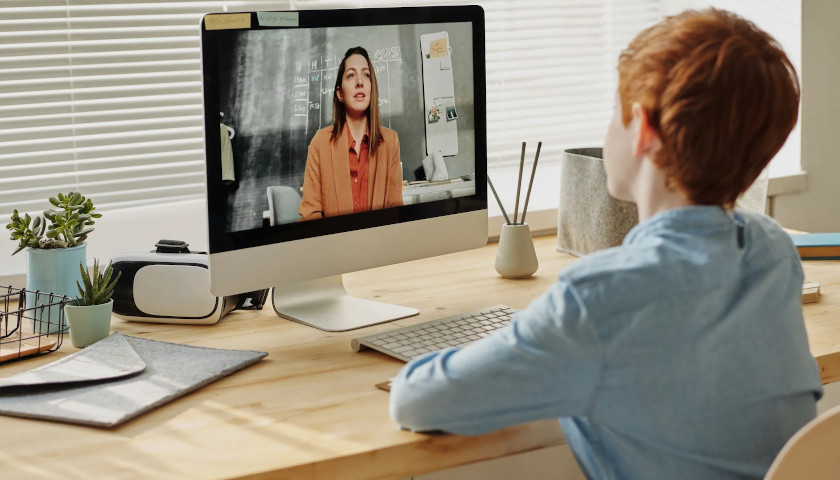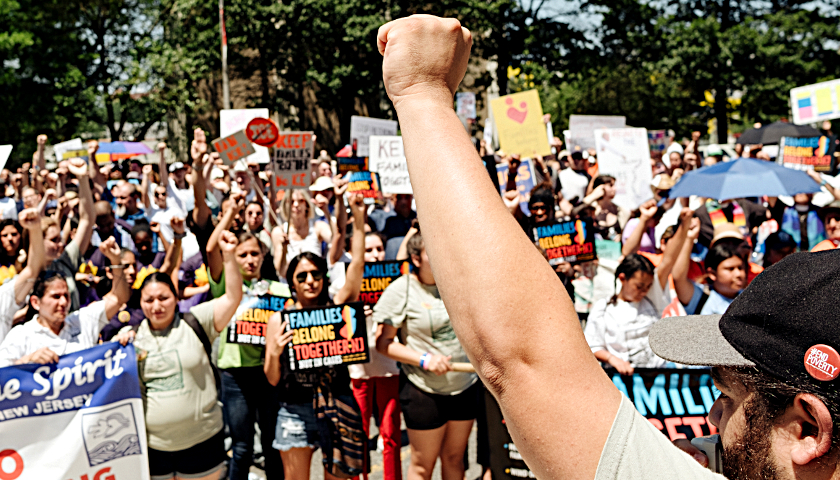by Bethany Blankley
Several reports published in western countries worldwide argue that children should be returning to in-person classrooms in the fall.
Reports by the top pediatric hospital in Canada and by a leading expert in the British government argue that schools should reopen with relatively few restrictions because of growing evidence that indicates that children appear to be at little risk of contracting or spreading COVID-19.
According to a report published by the Hospital for Sick Children in Toronto, “while school closures may have been reasonable as part of the early pandemic response, current evidence and experience support the concept that children can return to school in a manner that maximizes children’s health and minimizes risks from a Public Health perspective.”
According to a report by The Times, “There has been no recorded case of a teacher catching the coronavirus from a pupil anywhere in the world, according to one of the government’s leading scientific advisers.”
Mark Woolhouse, a leading epidemiologist and member of the British government’s Sage committee, told The Times that policy decisions made to close schools in March, given the limited role children play in spreading the virus, was a mistake.
In the British Medical Journal, doctors Alasdair P.S. Munro and Saul N. Faust, argue that “children are not COVID-19 super spreaders” and it is “time to go back to school.”
“Governments worldwide should allow all children back to school regardless of comorbidities…” they argue. “The media highlight of a possible rare new Kawasaki-like vasculitis that may or may not be due to SARS-CoV2 does not change the fact that severe COVID-19 is as rare as many other serious infection syndromes in children that do not cause schools to be closed.”
According to a report conducted by the Icelandic deCODE genetics company, “Children under 10 are less likely to get infected than adults and if they get infected, they are less likely to get seriously ill. What is interesting is that even if children do get infected, they are less likely to transmit the disease to others than adults. We have not found a single instance of a child infecting parents.”
Australia’s Deputy Chief Medical Officer, Nick Coatsworth, explained in a policy paper that school closures were initially implemented to control an influenza-like epidemic. “But COVID-19 is not the flu. Far fewer children are affected by COVID-19, and the number of transmissions from children to children and children to adults is far less.”
Reports abound worldwide that have published similar findings.
The American Academy of Pediatricians (AAP) has urged local governments to reopen schools. Long periods away from school, the AAP says, interrupts support services for children and often results in social isolation. These factors make it “difficult for schools to identify and address important learning deficits as well as child and adolescent physical or sexual abuse, substance use, depression, and suicidal ideation,” the academy adds. “This, in turn, places children and adolescents at considerable risk.”
The academy’s advice comes as many teachers’ unions and school districts across the country are pushing back against reopening schools.
The Los Angeles and San Diego schools districts say that the new school year will begin with online learning only.
Several North Texas county health departments have shut down back-to-school plans, prohibiting all local districts from holding in-person classes for the first six weeks of the 2020-21 school year, and perhaps longer.
Tarrant County’s local health authority, Dr. Catherine Colquitt, issued an order banning on-campus, face-to-face instruction and activities until Sept. 28. With certain exceptions, students countywide in pre-K through grade 12, in public and non-religious private schools, will be limited to remote learning only.
The order comes after the Texas Education Agency’s (TEA) issued it 2020-2021 Public Health Planning Guidance document, which states that schools “must provide daily on-campus attendance for students otherwise entitled to attend school … whose parents wish them to attend on campus each day.”
In-person public school instruction requires children over age 10 to wear face coverings in accordance with Gov. Greg Abbott’s latest executive order, unless the order is amended before classes begin.
The Toronto-based hospital report states that school closures, in part, have had “significant adverse health and welfare consequences for children.”
It suggests that “the best overall strategy … taking into account the massive secondary adverse health and well-being implication of the lockdown, is to ease restrictions and return to school.”
It also argues that children should be allowed to return to their educational routines and environments with minimal modifications, including the scrapping of any strict “physical distancing” plans.
Instituting strict physical distancing “is not practical and could cause significant psychological harm,” they write. “Close interaction, such as playing and socializing is central to child development and should not be discouraged.”
Requiring children to wear facial coverings is “not practical,” they add, pointing to “a lack of evidence that wearing a face mask prevents SARS-CoV-2 transmission in children.”
The authors emphasize that mass gatherings and sports activities should be restricted or cancelled, and schools should implement rigorous cleaning procedures.
– – –
Bethany Blankley is a contributor to The Center Square.





